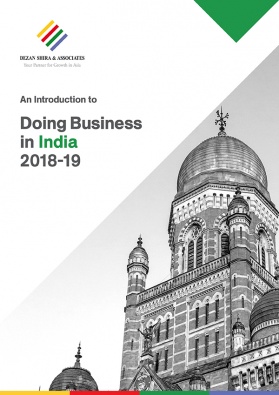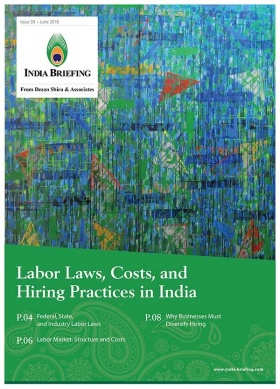Talent Procurement in India’s Information Technology Sector
India’s labor force is capable of maintaining the IT sector’s global competitiveness.
But what do foreign IT employers need to understand about the labor pool before investing?
The state of IT talent in India
India produces huge numbers of engineering and science graduates. While Indian colleges and universities range dramatically in terms of quality of education, selecting graduates from the top 15 percent of schools still translates into tens of thousands of promising candidates.
Moreover, the leading IT employers provide their employees with in-house training – spending collectively over US$1.6 billion every year to ensure their employees are up to world-class standards.
Foreign businesses who outsource IT services to India can hire employees with international experience working at domestic rates.
Despite the recent media spotlight on restructuring and layoffs, the IT sector remains one of the fastest growing sectors in India. The sector currently employs 3.7 million people and has a market size of about US$155 billion in the financial year (FY) 2017 – showing a growth of eight percent year-on-year.
Foreign firms readily find employees with solid technical training, international project experience, and English proficiency – all at competitive rates.
Yet, India’s IT sector is not invulnerable to the global shifts in technology and communications, such as the challenge posed by automation and social, mobile, analytics and cloud (SMAC). Leading players in the IT industry understand the disruptive effect automation will have on their sector and are thinking proactively.
The up-skilling of India’s IT labor pool
The rise of automation will disrupt and reinvent traditional back-end services. But India is solidifying its position as the world’s most popular outsourcing destination by equipping its workforce with the capacity to handle these new service needs.
Many Indian companies are currently training their employees in digital skills such as cloud computing, machine learning, and data analytics. They are re-imagining their industry to be the world’s destination for digital solutions. Meanwhile, India’s IT talent pool is also keen to up-skill, keeping pace with the changes in the industry.
As automation becomes a global reality, having an Indian team developing new skills for the digital age prepares foreign companies – proactively – for new demands in an increasingly digitized working environment.
For employers engaged in traditional IT segments, however, there are more practical considerations. Layoffs by major IT companies transitioning towards newer technologies influence the salary threshold for non-specialized talent in the sector, allowing employers seeking talent with basic qualifications to hire at lower rates than before.
Procuring IT talent from India, is, therefore, not only good business sense for the present – it can also help foreign businesses prepare for the effects of emerging disruptive technologies. Overall, as the IT sector reinvents itself, foreign businesses should recognize the connected benefits of this transformation.
Talent acquisition in Gurgaon, Mumbai, and Bangalore
In terms of talent, Gurgaon, a satellite city of capital Delhi, and Bangalore present the most dynamic environments for recruiting IT talent in India. Mumbai is somewhere between Gurgaon and Bangalore: there is a large pool of IT professionals, but labor costs and competition is high.
Bangalore has a much larger pool of IT talent than Gurgaon and the surrounding National Capital Region (NCR). Bangalore also presents a more competitive labor market for IT employers, particularly those with a low brand or name recognition. Gurgaon, on the other hand, is a viable alternative for IT employers that need IT talent, but do not have the resources to compete with much larger multinational IT employers.
About Us
India Briefing is produced by Dezan Shira & Associates. The firm assists foreign investors throughout Asia and maintains offices in China, Hong Kong, Indonesia, Singapore, Vietnam, and Russia.
Please contact india@dezshira.com or visit our website at www.dezshira.com.
- Previous Article #MeToo Movement in India: The Sexual Harassment Law and HR Best Practices
- Next Article Maternity Leave in India: The Law and Benefits











